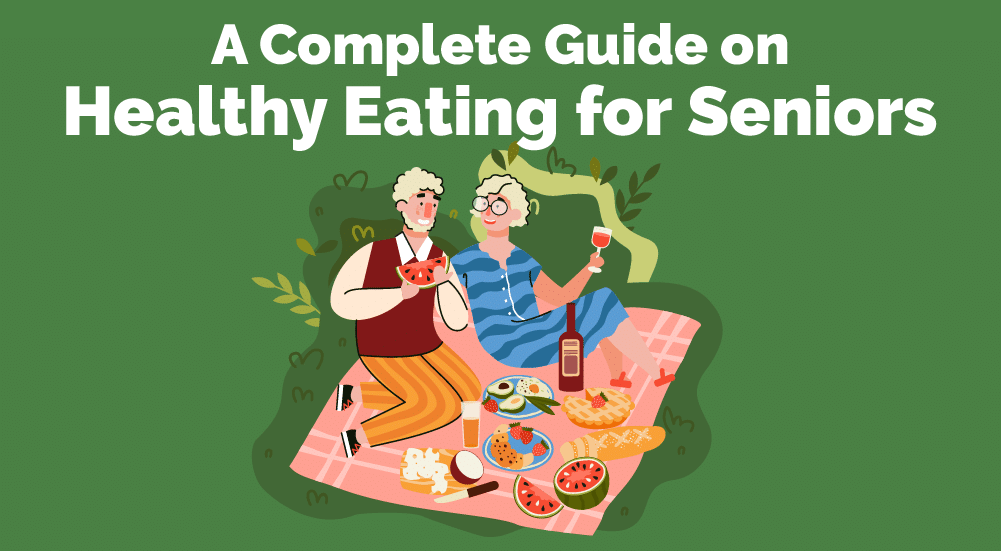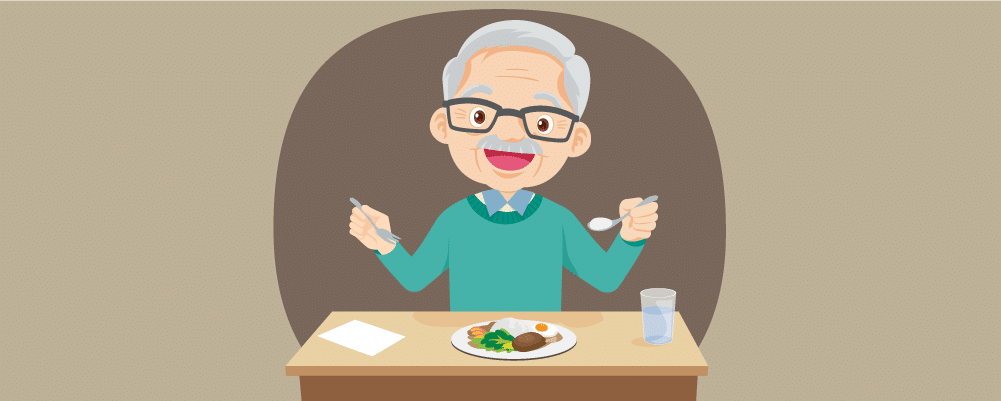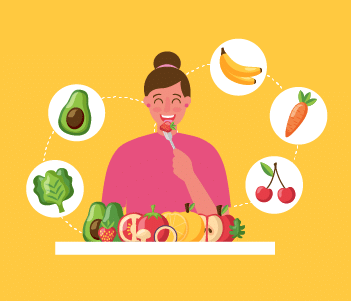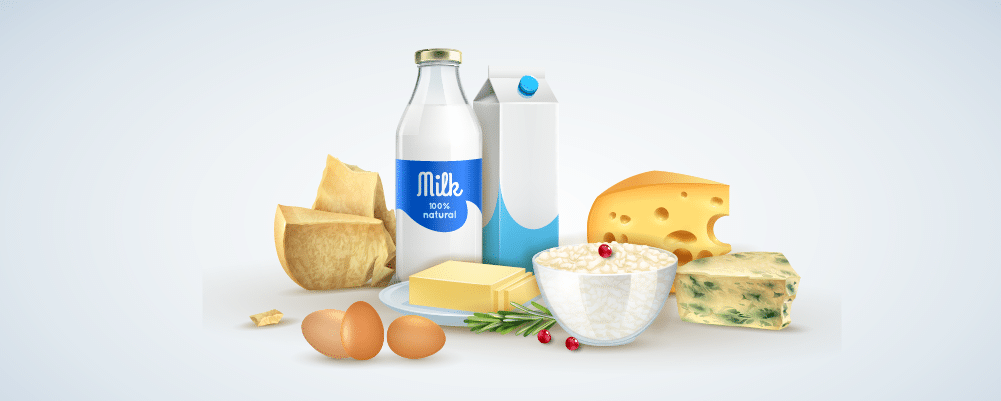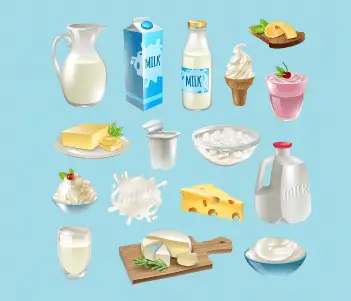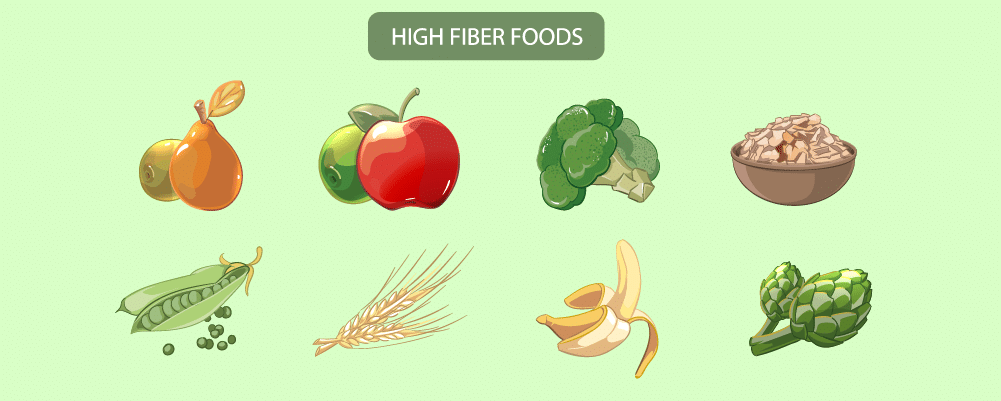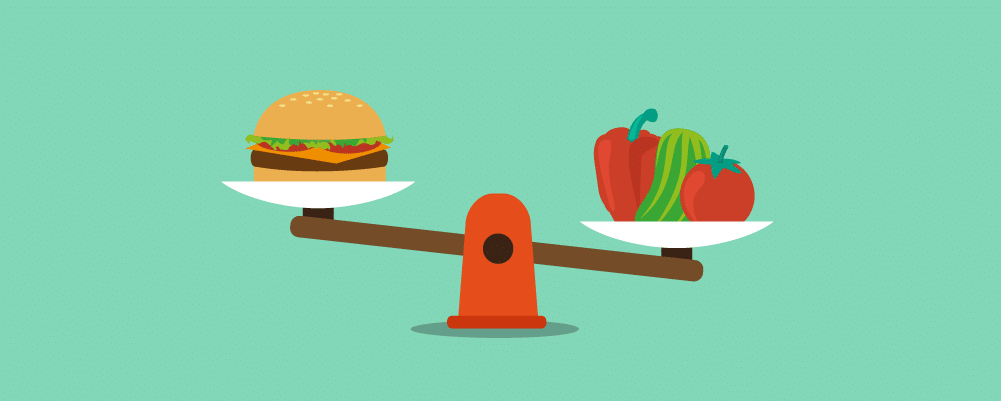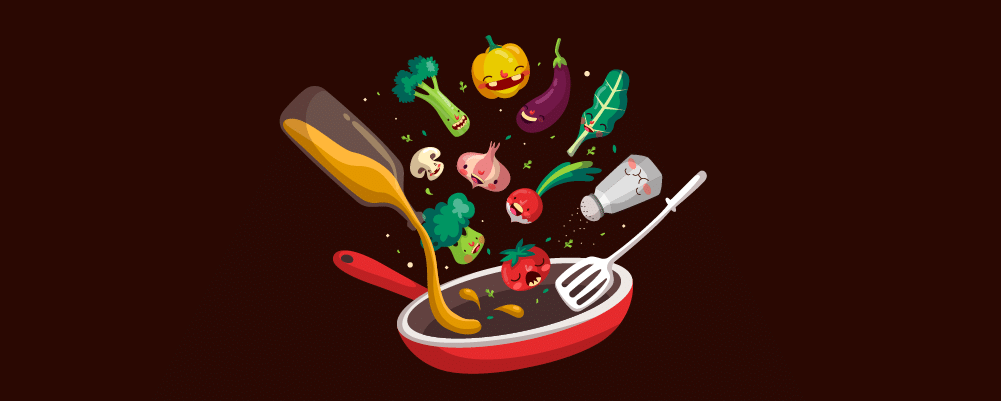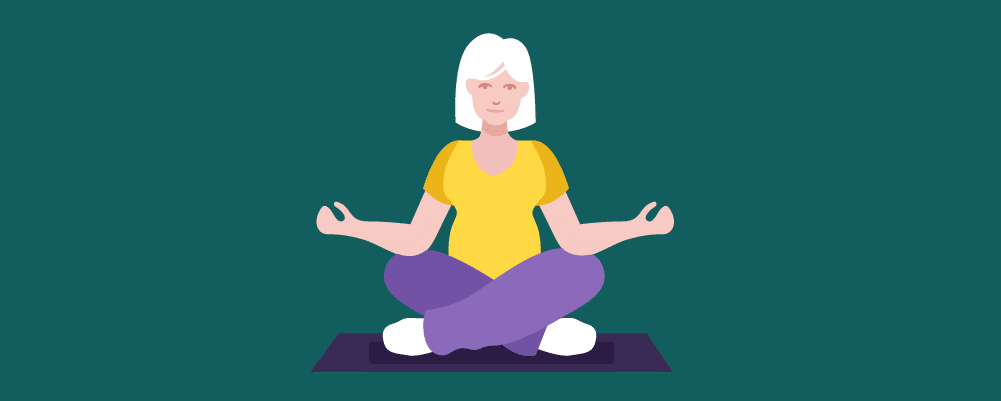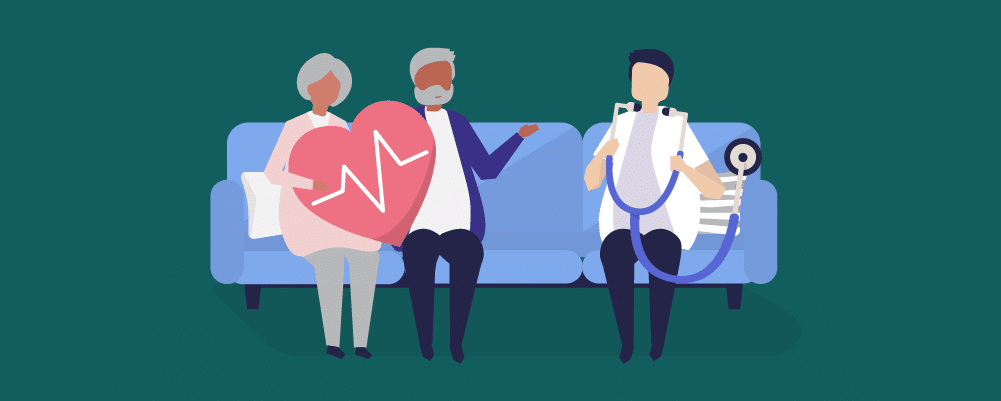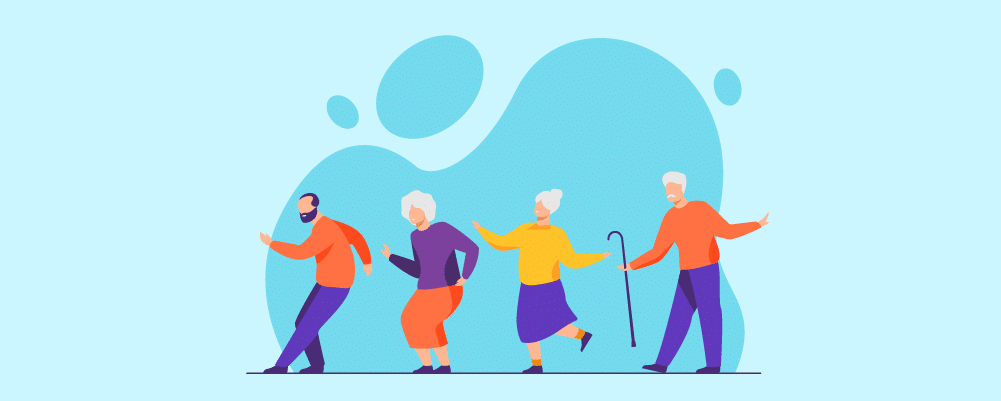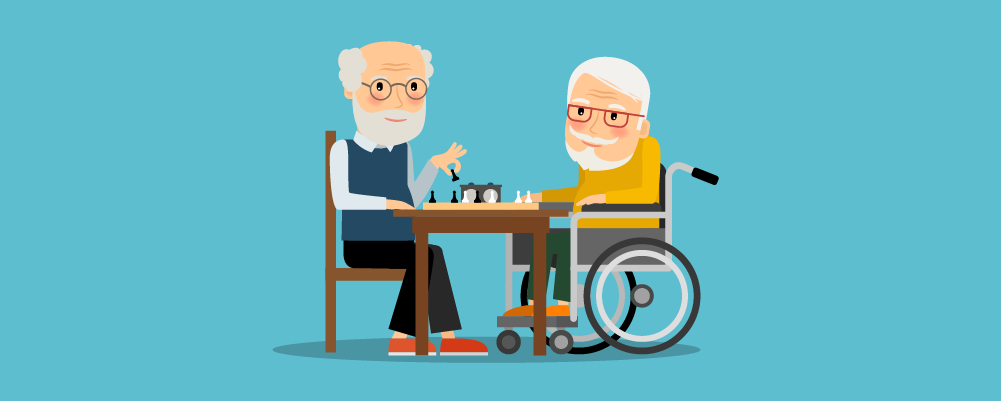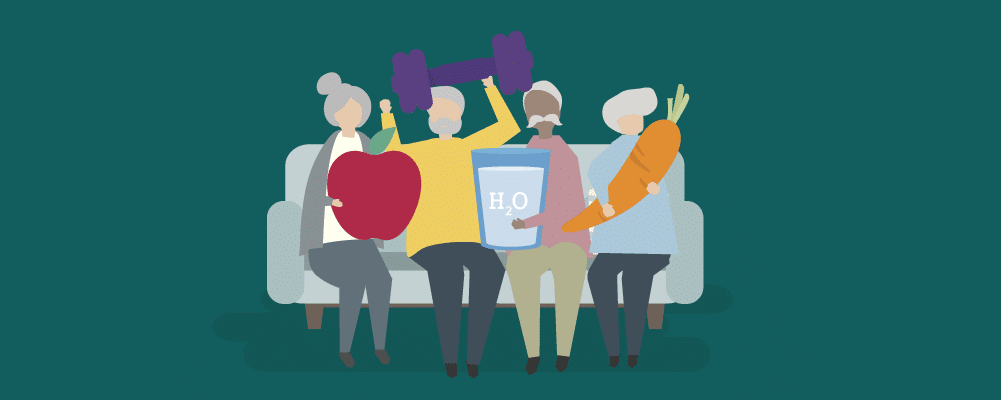This is a guide to healthy eating, for a longer and happier life. This will help seniors to make healthy choices without having to give up on the things they love…
People are often shocked by how important eating a balanced diet continues to be in later life. Sadly, there is no free pass for eating what we want once we hit a certain age.
And you may be surprised to discover how much of a difference a balanced diet can make to your quality of life.
As we get older our bodies change. What we were eating at 25, 45, or 55 is no longer appropriate. Whilst the body begins to require fewer calories, it starts relying more heavily on other nutrients such as vitamin B-12, vitamin D, etc
With a few tweaks and some advanced planning, it is simple to switch over to a diet that serves you. The right diet can give you more energy, make your skin glow, reduce joint pain, and even put you in a better mood.
Being in control of your own diet can help you prevent many health problems. It’s a lot easier than it sounds. Let’s begin this guide by looking at why it’s so important to eat well as a Senior.
Read our detailed articles about Elderly Nutrition
Why is Eating Healthy Important for Seniors?
Yes, switching up your diet does sound like a lot of effort. But you will get so many rewards from it that it will be entirely worth it. Taking control of your own diet and understanding what your body needs from it is life-changing.
As our body changes, we will need to change our diets to match it. This can be hard to do when you don’t fully understand what’s going on. In the following section, we will talk you through the most important things you should be aware of.
Controls conditions such as diabetes

It will also give you an opportunity to manage many of your conditions.
As we age we will need to eat less sugar and salt. Avoid extra sweetened beverages and processed foods. The American Heart Association recommended limiting daily sodium[salt] intake to 1,500 mg a day for people age 50 or older
Understanding this can help you to choose the right things to eat. As a result, you will feel better, have more energy, and even be happier.
Calorie intake should be lower
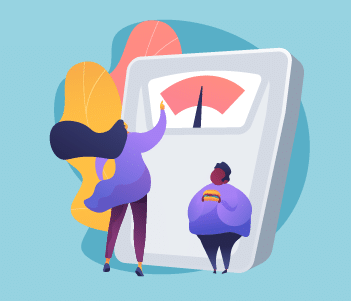
The major casualty of our activity drop is our carb intake, as our body no longer needs to make so much energy. Eating too many unnecessary carbs can lead to weight gain and an increased risk of many other health problems.
Table 1: Recommended Calorie intake in elderly
| Adults > 50yrs | Calories Intake per day |
| Males | 2,000 to 2,200 if Sedentary
2200 to 2600 if Active |
| Females | 1600 to 2000 |
Immune System
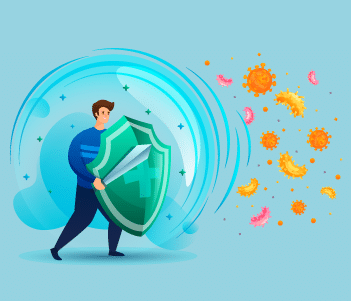
Because of this, we need to adjust our diet to provide more support for our immune system.
This can include upping our vitamin D [ To be taken under medical supervision] and antioxidant intake.
As well as exercising more and reducing our stress levels.
Read our detailed articles about Elderly Health
What to Eat?
One of the best things you can do when it comes to eating is to eat as big of a variety as you can. That way you will be able to get the nutrients that your body requires from your diet alone.
The following list is a quick guide to the types of foods and food groups you should be including in your meal plans.
Fruit and Vegetables
Antioxidant-rich dark, leafy greens
Everybody should be eating leafy greens every day – no matter their age or health status.
They wonder leaves are packed with many health benefits, it would be a crime not to eat them.
Antioxidants help improve almost every part of our health and are an essential part of our diets. Leafy greens are also high in iron and vitamin C.
These types of leaves are free from FODMAP sugars, which can cause irritation in our digestive system.
Carrots and Squash
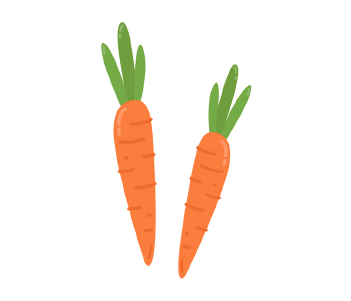
Try to incorporate multitasking foods (ones that provide more than one vitamin to your diet) like these into your diet as frequently as possible.
Who doesn’t want to enjoy a big plate of roast squash sprinkled with garlic and rosemary?
Carbohydrates
When we eat good carbs (whole grains, sweet potatoes, legumes) our body is able to break them down into sugars that it uses to power itself. Not eating healthy carbs can lead to fatigue and sugar cravings.
Here are some good carbs you can try to include in your diet:
- Brown rice
- Avocados
- Whole Grain cereals
- Bananas
- Brown Bread
- Seeds
Dairy
Milk, Yoghurt, Cheese
Calcium is one of the most important minerals a Senior needs for a fully functioning body.
A glass of milk, a wedge of cheese, and a small yogurt pot will meet your daily calcium requirements.
Remember to pair your calcium intake with lots of vitamin D.
Non Dairy options
If dairy isn’t your thing then, now, more than ever there are tons of options out there for you. The even better news is that many of the companies producing dairy alternatives add B-12 and calcium to their products.
That way you are not missing out on any of your essential nutrients and vitamins.
Fish and eggs
Fish and eggs are a great source of essential vitamins and minerals like OMEGA 3. The healthy oils found in these ingredients have been proved to promote gut health and a good night’s sleep.
Cooking with fresh fish is the best option, but can be very expensive. If you want to save some money then frozen fish is a great option. It will just require a little forward planning to defrost the meat in time.
Eat More Fiber
As our digestive system slows down (more on this later), it requires more fiber to function. You should try to eat around 30g of fiber a day.
Eating this amount of fiber has been shown to reduce the risks of developing heart disease and Type 2 Diabetes.
Water is Vital
Water is vital at all stages of our lives.
It can prevent dizziness, constipation, headaches, gum decay, sore throats, stomach cramps, and fatigue.
As we grow older our body needs more water to function properly. Try to drink at least two liters of water every day.
What to Avoid or Cut Down?
So, now we understand what you should be eating more of, let’s have a look at things you should be cutting down on. Don’t worry, and this is a concise list.
Sugar
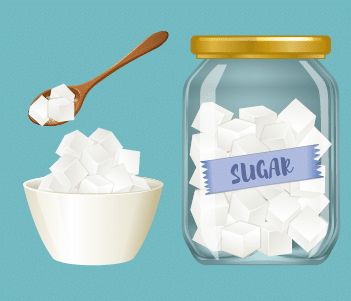
When we haven’t eaten enough good carbohydrates our body tries to rectify this by making us crave sugary things.
The older we get the more important it is to learn how to ignore these cravings.
Sugar can raise our blood pressure and affect our energy levels.
Alcohol

That alone is a good enough reason to want to cut down your alcohol intake.
However, there are a few other reasons that would consider doing this.
Conditions like Heart Disease, Diabetes, Dementia and High Blood Pressure can be made worse by alcohol consumption.
This is because alcohol is high in sugar content. It also affects how our capillaries and arteries function.
Home Cooking or Delivery Meals?
When it comes to retirement people tend to fall into two different categories:
- ‘I have so much time on my hands, I can use it to cook delicious meals’
- ‘I have better ways to spend my time than cooking all afternoon’
The good news is that no matter what camp you fall in, you can still enjoy healthy food. Thanks to food delivery services.
Homing cooking gives you complete control over the ingredients that are being used in your food.
However, the food delivery service world has changed very much over the last decade. It is now possible to get either prepared meals, or prepared ingredients delivered.
Cooking as a social activity

Why not try out a meal delivery service that prepares all the ingredients you need for each meal and sends them to you.
This way you can get straight to cooking; without going shopping, or having to chop anything up.
These meals are usually designed to take less than half an hour to cook.
But you can still enjoy all your favorite parts of cooking.
Delivery… not just takeaway

The truth is that they are quite the opposite.
They are prepared by qualified chefs, using the best ingredients, and then flash-frozen to seal in all the goodness.
All you have to do is pop them in the oven and enjoy.
Read our detailed articles about Senior Lifestyle Choices
Our Top 5 Easy Healthy Recipes
We understand that changing your diet can seem like an overwhelming experience. It is hard to know where to start. So, we thought we’d help you out.
Here are four healthy (and REALLY delicious) recipes to help you plan out the first week of your new diet.
Recipe 1 – Tomato Tart
We’re starting with one of our favorite recipes. What we love most about this recipe is that it’s so easy to customize. Don’t like tomatoes, try pepper! Want more veggies, add some spinach and broccoli. Want more flavor, add pesto.
This recipe is really easy to customize for dietary requirements as well. You can use gluten-free puff pastry or vegan cheese if you need to.
INGREDIENTS
- 1 sheet frozen puff pastry, (don’t forget to thaw it!)
- 1 onion, thinly sliced
- 1 teaspoon olive oil
- 2-3 large tomatoes (why not try multiple colors of tomatoes)
- 1 cup of your favorite cheese
- 1 tablespoon seasoning
INSTRUCTIONS
- Set your oven at 425 F, thaw your puff pastry, and cover a baking tray with butter paper.
- Roll out your pastry and use a fork to perforate it 20-30 times. Cut up all your ingredients.
- Saute the onions in olive oil for around five minutes. Until they are soft.
- Cover the pastry with your onions, add half your seasoning, and all your cheese.
- Bake until the pastry is golden. This will take about 25 minutes.
- Add the rest of your seasoning and enjoy
#2 – Roasted Eggplant and Tatskiki
INGREDIENTS
- 1 eggplant, cut into ½-inch slices
- 2 cloves of garlic, finely chopped (you can use pre-chopped from the jar)
- ¼ cup olive oil
- 1 teaspoon spice blend
- THE SAUCE
- 1 cup Greek yogurt (great source of probiotics for digestive health)
- 1 clove garlic, finely chopped
- 1 tablespoon lemon juice
- 1 teaspoon honey
- 1 tablespoon fresh herbs, like basil or mint (optional)
INSTRUCTIONS
- Combine all the ingredients for the sauce. Mix well, season, and chill in the fridge while you prepare the rest
- To soften the eggplants and to prevent them from going soggy, sprinkle them with salt and leave for an hour to dry out
- Take your spice blend, olive oil, and garlic. Mix them together in a small bowl.
- Use this mixture to brush both sides of the eggplant slices
- Roast the eggplant for 15 minutes, until golden brown on one side. At the 15 minute mark, flip the eggplant and repeat the process.
- Serve with both brown rice, fresh cucumber, and chopped tomatoes.
#3 – The Only Soup Recipe You’ll Ever Need
Things needed
- 1 small onion, diced
- 1 cup frozen or canned spinach or collard greens (fresh also works well)
- 1 (32-ounce) box low-sodium chicken or vegetable broth
- 1 (10 ounce) can of crushed or diced tomatoes
- 1 teaspoon Italian seasoning
- 1 pound ground beef
- 1 (15 ounces) can white beans
How to make it?
- Brown your meat in a soup pan, when it is ready, add your onions. You can saute these together for 5 minutes.
- Pour the mixture into a paper towel to allow the excess fat to drain away. Set the meat aside for later.
- Add the rest of the ingredients and saute for 5 minutes. Add the meat and onions back.
- Allow simmering for 30 minutes. Then season it.
- Enjoy! Fresh bread makes a great pair with this soup.
#4 – Spring Pasta
Things Required
- 1 zucchini sliced
- ½ pound pasta
- ½ cup grated Parmesan cheese
- 2 tablespoons olive oil
- Fresh basil
- 1 small onion, diced
- 1 pound bag frozen peas
- Lemon juice to taste
INSTRUCTIONS
- Prepare your pasta and continue with the rest of the recipe whilst it cooks. With 5 minutes to go add the frozen peas.
- Saute the zucchini, oil and onion until soft.
- Add a glass of water to the vegetables.
- Drain the pasta and add it to the pan with the vegetables.
- Whilst the ingredients are still hot add the Parmesan cheese to the mix.
- Add lemon juice, season, and serve.
Physical Changes in Your Diet with Age
As we have alluded to throughout this article, as you age your body changes. Your nutritional requirements will change along with this. Most of us will have to change our diet as we grow older.
Let’s take a closer look at how age affects our bodies and diets:
Metabolism
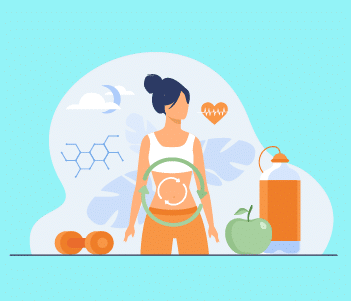
We can maintain our metabolism by trying to stay active, but there are a few other things we can do to help improve our metabolism.
Cardiovascular exercises are a great way to kick-start your metabolism.
Here are four ways you can try to boost your metabolism:
- Get enough sleep. It seems like this is the answer to every health-related problem, but it’s true! The amount of sleep we get can affect our whole body’s ability to function. Digestion becomes more difficult as we age. It takes more energy to digest food. A tired body will suppress your hunger to conserve energy, which in turn will make you more tired due to lack of fuel. Thankfully, this cycle can be broken by getting good amounts of sleep.
- Eat enough and have a balanced nutritious diet. Eating less will lead to a slower metabolism, and will only make you feel more tired. Therefore to keep your metabolism ticking over, make sure you are eating enough. You will see the benefits of this in all areas of your life.
- Eat protein-rich foods. One study showed that consuming 20% of your daily calories as protein could boost your metabolism by up to 100 calories a day. Protein can be found in all sorts of foods so don’t feel like you need to be eating red meat all day, every day.
- Try drinking green tea – particularly matcha tea. A cup of green can increase your metabolism by up to 4%. This is thanks to the chemicals that these barely processed leaves produce. They also have a different type of caffeine compared to coffee. This type of caffeine is slow release and does not trigger anxiety. If you’re looking for a real boost to your health try matcha green tea. This is a powdered form of green tea which is 10X concentrated. One cup of matcha has X136 antioxidants as a green tea teabag.
Weakened senses
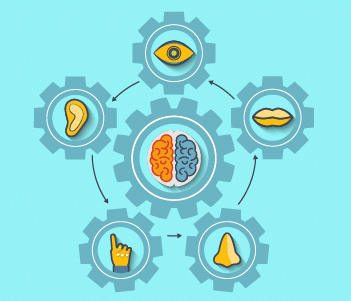
They all dull over time.
Whilst this is not immediately dangerous it can affect us negatively in other ways.
The dulling of our senses can lead to us feeling isolated, even among those who love us. As we are no longer able to perceive detail in the way we once were.
This can also lead to us enjoying our food less. A great way to combat this is to add a lot more herbs and seasoning to your food.
This will have your taste buds working overtime.
Medication and Illness
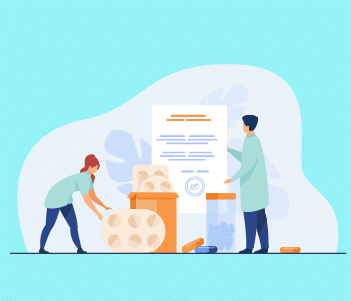
As we age we usually succumb to new types of illnesses, or we will begin to take new medications.
These changes can affect all of us in different ways.
Some of us may want to eat more. Whilst others may have a reduced appetite. Some medications may even lead to nausea.
If you are worried about your appetite then your doctor will be happy to talk you through the different ways to cope with these changes.
Take supplements if needed
As we get older our bodies change. They need a different range of vitamins and minerals to function at the best.
By taking some time to understand how aging affects your body you can work with the process, rather than against it. Doing this will lead to you feeling better on a day-to-day basis.
If you want to get a better understanding of what vitamins and minerals your body needs, ask your doctor to do a blood test. This way you will be able to get exact answers and save yourself some money.
The following vitamins and minerals, according to many major health boards, should be taken by all seniors.
Calcium
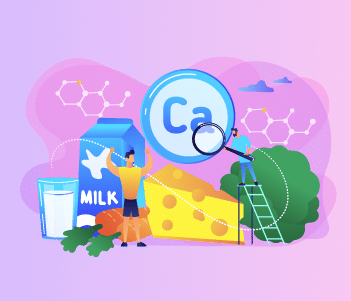
What many people don’t know is that life-long calcium intake is the key to a lifetime of healthy bones.
Older bodies actually require the same amount of calcium as bodies of young adults. Cheese, yogurt, and milk are great sources of calcium. However, some find it easier to take their calcium in the form of a tablet.
It is essential to combine your daily calcium intake with Vitamin D. The vitamin is what the body uses to absorb calcium. To get the full benefits you should be taking both.
Vitamin D
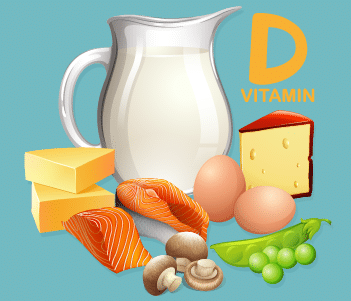
Many places get so little sunlight that people should be taking them throughout the year. Seniors are less likely to be active, particularly throughout the winter months. As we get older our skin also gets less efficient at producing the vitamin.
What does vitamin D do?
- The older you get, the more you rely on your immune system. One of the main components for keeping this system functioning is Vitamin D.
Therefore we suggest taking vitamin D supplements throughout the year under medical supervision.
- It also helps to strengthen our bones.
- It is also responsible for helping our brains produce Serotonin.
- Vitamin D is also a key component of dental health. Vitamin D is needed to absorb all that calcium we were talking about in the last section.
There are many benefits to taking vitamin D.
[Note: Take supplements only under medical supervision as the excess of Vitamin D supplements may cause toxicity].
Vitamin B-12
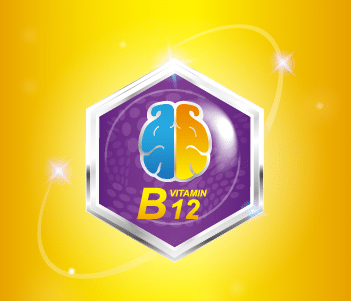
However, this is not the case.
Up to 20% of people over the age of 50 are vitamin B-12 deficient.
Our body can not produce it, so it needs to be supplied through diet. Vitamin B-12 is naturally present in animal products [meat, milk, yogurt, cheese, eggs, etc.].
What does Vitamin B-12 do?
- Supports your immune system
- Supports your digestive system
- Formation of Red blood cells
- Improves cognitive function
- Promotes DNA synthesis and Boosts cell growth
How can I tell if I am vitamin B-12 deficient?
- Walking difficulties
- Memory problems
- Neuropathy
- Fatigue
- Anemia
Manage your stress level
High-stress levels can have a really dangerous effect on your body at any age. However, it can take a heavier toll on you as you get older.
One of the major dangers of experiencing extreme stress as a senior is that stress has been proven to suppress the immune system. This can lead to developing food intolerances and becoming unwell more frequently.
Another worrying side effect of stress is how it affects your heart. Stress raises both your blood pressure and your heart rate – leading to your heart being overworked.
Stress can also lead to unhealthy indulgences like drink and drugs. Both of which can have profoundly negative effects on our hearts.
Stress can also lead to hearing, sight, and dental problems.
So, what can you do to avoid these negative effects?
- Try meditating – Meditation has been proven to reduce stress and cortisol levels in our bodies. Cortisol is produced when our brain is overwhelmed with stress. It affects our joints and can even lead to weight gain. Taking 10-15 minutes out of your day to meditate can significantly reduce your stress levels, and will make you a happier person.
- Try Yoga – We will dig deeper into this later, but Yoga has been shown to provide many of the same benefits as meditation and helps to improve your body at the same time.
- Exercise every day – Again, we will cover this in more detail in a later section. But, daily exercise can help prevent cortisol build-up.
- Cut the caffeine – the older we get the less our body can cope with caffeine. Add to that many scientists believe that caffeine can aggravate stress and anxiety.
- Try journaling – Journaling is another mindfulness technique that can help us process and move on from any negative thoughts. Many people find that writing down how they feel leaves them feeling more relaxed after they have finished.
Regular checkups
As you get older it becomes more important to be proactive about your health. Many diseases are not deadly if they’re caught early. Many problems can be treated and solved if caught early. The key to this is to take preventive measures.
The best preventive measure is to get regular checkups. Rather than only visiting a health professional when you notice a problem.
Visit a Doctor
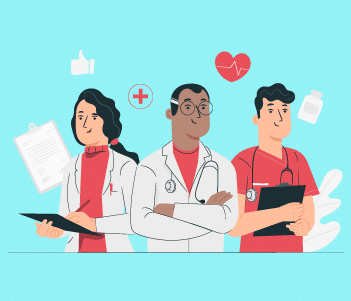
However, we recommend getting checkups at least twice a year.
If you are concerned about your health then you can increase this to a quarterly visit.
You should also visit your doctor if you do notice a problem, or there is a sudden change in your health.
Do not avoid the doctor’s office because you were there recently for a checkup and nothing was found. It is much better to be cautious about your health.
Dentist
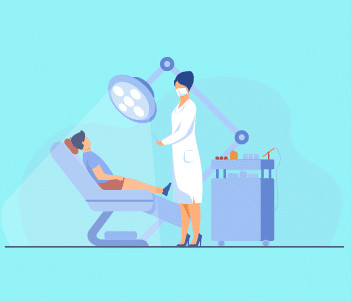
As human beings start to live longer, we are beginning to last longer than our teeth have evolved to.
Lots of older people are developing dental problems in later life. Whilst this is common, it is nevertheless important to visit your dentist regularly.
Needing dental work done is neither cheap nor painless.
Hearing
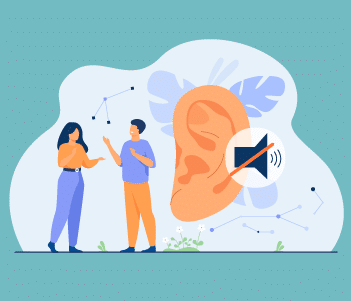
But that does not mean that there aren’t things we can do to improve the health of our ears.
We recommend getting hearing tests done at least twice a year once you turn 65. Having tests done regularly means that you and your healthcare professionals have a good understanding of what’s going on with your hearing.
Any changes can be easily noted and dealt with. Many people are embarrassed by the idea of wearing hearing aids.
Technology has changed tremendously over the last decade, and now hearing aids are near invisible. No one will even realize that you’re wearing them.
Vision
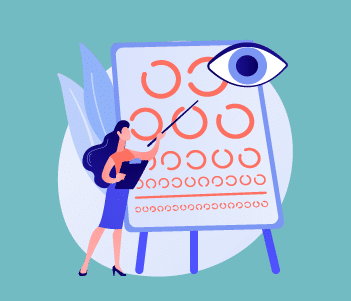
One of the brilliant things about eye tests is that changes in your sight can actually be early warning signs to conditions occurring elsewhere in your body.
Whilst it is not ‘brilliant’ that these conditions are occurring, what is helpful is that eye tests can pick these issues up before they cause the rest of your body any damage.
When at home you should regularly check that your vision is working in both eyes. If you notice any kind of change to your site, book an eye test immediately.
Get Active
Now that we have your diet sorted, it’s time to pair it with a complimentary exercise routine. Together these two things will greatly improve your well-being.
By the time we reach our senior years, we’re probably all fed up with being told to get active. Well, we’re sorry to say that there is a reason we’re always being told this. As you get older being active gets more and more important.
We understand that with the changes that happen in your body during your senior years that exercise can be a scary concept. That is why we have handpicked a set of exercises perfect for this age group.
The good news is that you can stay active without putting excess stress on your body.
Walking
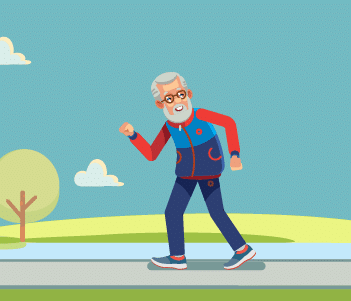
Not only is it great for our mental health, but it can also do amazing things for our bodies.
The study reported that seniors should be walking for at least half an hour every day
30 minutes of intense walking at different elevations will be sufficient, which is equivalent to almost 7,000 to 10,000 steps/day.
This is a great opportunity to meet friends or get some time to yourself. Why not listen to an audiobook, or learn something new by listening to a podcast.
Cycling
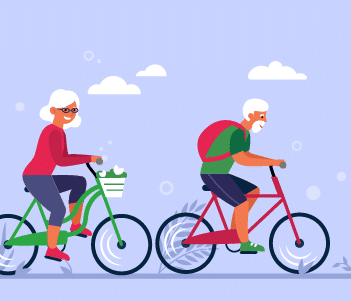
It can cut your risk of heart disease by 40%, and it can reverse 9 years of cellular deterioration.
It can lower your cholesterol and help to maintain bone density.
Cycling is great for your cardiovascular system and it has been recorded to reduce the chance of lung disease, and the increased circulation can actually improve your mental health as well as brain function.
So, if you want to be stronger, happier, and healthier – give cycling a try.
Swimming

Whilst some cite this as a problem with embarrassment or self-image, many have another reason.
One of the leading reasons as to why seniors don’t exercise is that they are experiencing pain.
And that they’re worried exercising will make them feel worse. If that is the case for you, then you don’t need to worry.
There are plenty of great exercise options that are gentle on the body and joints. Swimming is a perfect example of this exercise.
Swimming has been proved to be such a helpful exercise for people in pain, that it is now being used as a treatment by vets to treat animals that would have otherwise gone lame.
When swimming, the pressure of your bodyweight is lessened by 90%. This takes the strain away from your joints, spin, core, hips, and any other troubling areas of your body.
Swimming is a compound exercise. This means that it works with more than one muscle in your body at once. In fact, on average it uses nearly every muscle in your body. This makes it a very effective form of exercise.
Aerobics
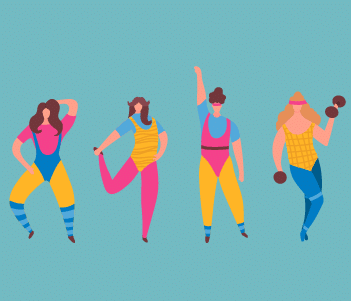
In fact, it is so popular in this age group that many health centers and gyms offer senior-only aerobics classes.
Aerobics classes are designed to keep your heart rate up whilst simultaneously helping you to build or maintain muscle.
They are great for maintaining bone density and are easy on problem areas like the knees and hips. They’re a great place to meet new people with similar positive mindsets.
Yes, exercise is good for you, but the before class gossip will also improve your health. If you are worried about these classes being too painful, why not try water aerobics!
Yoga
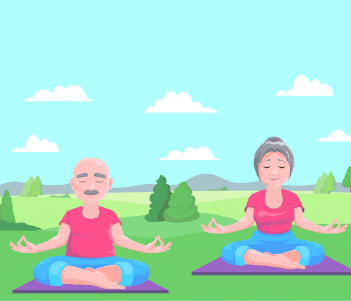
It has been found to do incredible things for our bodies, no matter what age we are.
The ASC claims that Yoga is one of the best forms of exercise for senior citizens.
When regularly practicing Yoga you could see the following benefits:
- Better sleep
- Stronger bones
- Reduced stress
- Better mobility
- Better strength
- Better flexibility
- Better balance
- Decreased likelihood of depression and anxiety
- Reduced daily pain
Yoga can be done from anywhere, but if you are new to it we suggest you start by going to a class. In a class, the instructor will be able to help you find safe modifications of any poses you can’t do.
It is important to make sure you are being safe whilst doing any of these exercises we have mentioned today.
Exercise Your Brain
It isn’t just your body that you should be exercising, your brain needs a daily workout too! There are many different types of brain functions that will start to lose if we don’t practice them.
By setting aside some time in your day to exercise your brain you can have fun, broaden your horizons, and keep your brain healthy all at the same time.
Studies have shown that brain exercises can not only improve brain function but can reduce the risk of developing cognitive diseases like Alzheimer’s.
So, what is a brain exercise? Well, brain exercises actually encompass a wide range of activities from doing sudoku, taking an art class, to meditating.
Below we have put together a list of popular brain exercises to get you thinking about what activities would suit you best.
Memory Games – like crosswords and sudoku
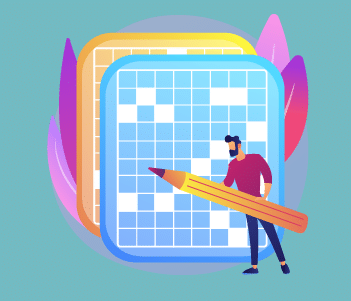
They activate both the problem-solving parts of your brain and the recall section too!
Crosswords are the best option out of the memory games as you have to work with words, numbers, and recall.
However, Sudoku promotes problem-solving and therefore is another great option. Card games, riddles, and jigsaw puzzles are also great options.
Learn a new language
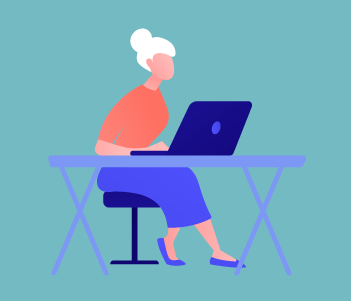
Learning languages builds new neural connections and pathways in our brain.
It strengthens our recall ability and allows us to flex our social muscles.
Learn a new skill
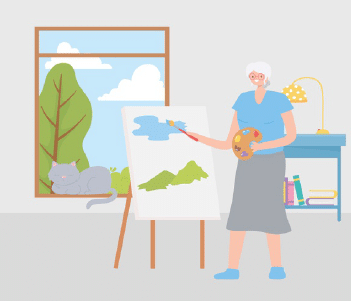
Why not take the opportunity to learn a whole new collection of skills.
Just like learning a language, new skills help us to develop new neural connections in our brain.
Taking up practical skills helps to strengthen the relationship between our brain and our body.
Many of these new skills can help you in other areas of your life too. Check out the list below for some life-changing skills you could take up.
Computer skills
Now, we’re not saying that you should be learning to code. But brushing up on the latest technology never hurts anybody. Technology is changing so quickly that there will always be something new to learn.
So, whether you’ve never used a computer or you used to use them every day for work you can still surprise yourself.
Why not learn how to use the latest video calling technology, or you could even make a home movie on your computer to make your grandkids laugh!
With a solid set of computer skills, no matter where you are, you will only be a few mouse clicks away from your loved ones.
Cooking
This may sound like a simple idea. However, being able to cook new and exciting things can open up a whole new world to you.
Whether you decide to learn from home or take a class you’ll always have a new excuse to invite your friends and family to a dinner party.
There’s no pressure to cook all the time if you do learn how to cook, but you will appreciate being able to make delicious food for yourself when you want to.
Crafting
There’s nothing like being able to take a pile of things like junk and make them into art with your own bare hands. Not only does crafting help you improve your cognitive abilities, and build hand-eye coordination.
It also comes with many other benefits.
Taking up a crafting hobby is a great way to make your friends and family gifts you’ll know they love. If you take up a skill like knitting or sewing you can make yourself some very fashionable outfits.
There are thousands of people all over the world who make a living by selling their crafts. You never know, it might be your chance to finally become a millionaire.
And so much more
Here is a list of some other great skills you could take up:
- Gardening
- Learn an instrument
- Learn woodworking
- Singing
- Self Defence
- Baking
- Bird watching
Summary
Getting older doesn’t mean an end to feeling good. With a good balance of healthy food, exercise, and learning new things you can feel better than you ever did.
The key to feeling good when you’re older is understanding the changes that are happening to your body. You want to work with your body and support it through diet and exercise.
Accept that your nutritional needs are changing, but that’s nothing to worry about. With a few tweaks, you can be thriving.
So what are you waiting for?! Time to sign yourself up for that Italian class. And don’t forget the water aerobics class too!

